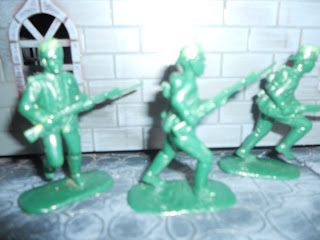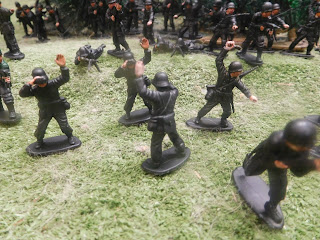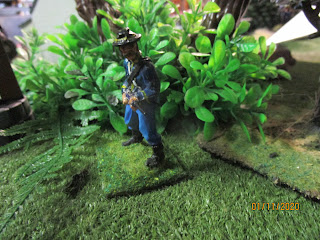Australia's Darkest Days
The memory of World War 2 is still strong for those who experienced it. My father remembers it as having taken his father from him when he was captured at Singapore and sent to Sandakan.
For younger generations of Australians they may be more familiar with the Japanese attack on Pearl Harbour than the one on Darwin. Yet the latter was a lot closer to home and killed more people.
This followed from the fall of Malaya and Singapore. The facts that have come out of that are that the allied forces were badly let down by the high command which was out generalled by 'the Japs', that the performance of allied troops, including Australians was a mixed bag, that the second fact partly followed from the first, that half the Indian POWs switched sides to the Japanese, that at least 40,000 Chinese were ethnically cleansed by the Japanese victors and that allied prisoners were starved or worked to death or executed. It is not one of the better moments for the British Empire.
It is also true that allied forces lacked decent air support. It is true that Churchill (who I admire for other things) did not supply sufficient capable planes and that it can be argued that Britain had its back to the wall and had enough to do fighting the Germans. However that did not stop Churchill wasting forces in an unwinnable Greek campaign.
For younger generations of Australians they may be more familiar with the Japanese attack on Pearl Harbour than the one on Darwin. Yet the latter was a lot closer to home and killed more people.
This followed from the fall of Malaya and Singapore. The facts that have come out of that are that the allied forces were badly let down by the high command which was out generalled by 'the Japs', that the performance of allied troops, including Australians was a mixed bag, that the second fact partly followed from the first, that half the Indian POWs switched sides to the Japanese, that at least 40,000 Chinese were ethnically cleansed by the Japanese victors and that allied prisoners were starved or worked to death or executed. It is not one of the better moments for the British Empire.
It is also true that allied forces lacked decent air support. It is true that Churchill (who I admire for other things) did not supply sufficient capable planes and that it can be argued that Britain had its back to the wall and had enough to do fighting the Germans. However that did not stop Churchill wasting forces in an unwinnable Greek campaign.









Good post. Churchill was a brilliant idiot, a very complex person.
ReplyDeleteFrom an Australian perspective the biggest blots on Churchill are the WW1 Gallipoli campaign and the low prority he gave to Singapore and Australian defence in WW2.
ReplyDeleteTo be fair to Churchill the Gallipoli failures can be pin pointed at several levels and chance played its part. After that disaster Churchill resigned his admiralty post and went to the Western front.
When Churchill wanted to continue to send troops to Burma rather than redirect them back to defend Australia he was backed in this by the Americans because of the threat to other places such as India. As for Greece he was already thinking ahead to the post war situation and the need to prevent communism getting a toe hold there, so it depends on where you are standing when you make a judgement.
It is true that Japan aparently had not intended to invade Australia, their priority being India. However they did manage to bomb Darwin sixty times as well as other northern Australian targets, and incidentally to sink a Sydney ferry or two with midget submarines. And money was printed to be used especially in a conquered Australia. Was this a serious thought of invasion or propaganda? The Australians were certainly worried and there was a plan to give up northern Australia and defend the southern half. If Australian and allied forces had not stopped the Japanese in New Guinea and the Americans had not won the Battle of the Coral Sea no doubt the Japanese would have gained a foothold in Australia, at the very least. My maternal grandfather or 'Poppy' used to say if not for the Americans we'd be pulling rickashaws down Bourke Street in Melbourne for the Japanese masters.
As for Churchill's positives, without his leadership Germany may well have remained in control of Europe. Without his charisma perhaps the British would not have been so determined in their resistance. Churchill also understood the threat of communism after the war, especially Stalinism, and coined the term 'Iron Curtain'.
His early career in the army, in such events, as the charge at Omdurman marked him as an exceptionally courageous man and this quality served him well in national leadership. As for his personal quirks, his humour, his literary skills and his love of simple hedonistic pleasures made him a person to relate to in a way that a Hitler or Stalin, or for that matter, a Margarette Thatcher could never do.
So as an Australian I have to qualify my admiration of Churchill but this did not stop me calling my (now deceased) cat, Winny, after him!